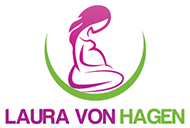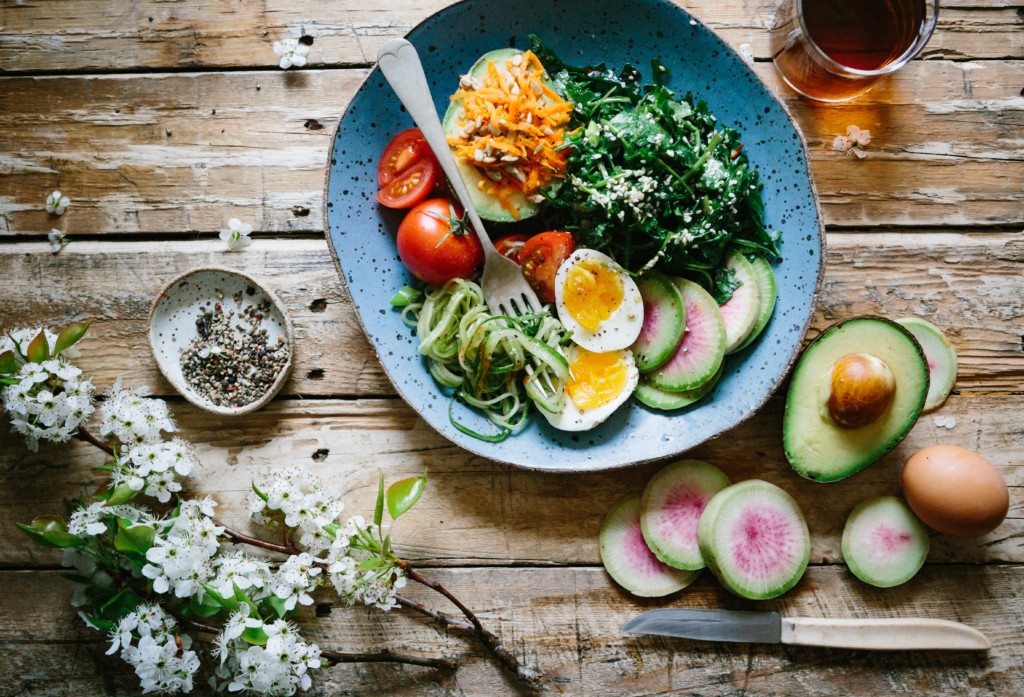If you search ‘why am I not getting pregnant’, Dr. Google leads you down a rabbit hole of contradicting and confusing information. This can result in additional, unnecessary anxiety for anyone who is already super stressed about trying to make a baby. As a Naturopathic Doctor with a strong focus in fertility, I am constantly sifting through the latest research in order to provide my patients with the best possible care. Here are the top five fats I find that many medical doctors don’t tell their patients, but I believe they are key to making healthy babies.
1. What You Eat And Drink Does Impact Your Fertility
You are what you eat and so is your baby. For anyone trying to conceive, there is overwhelming evidence that diet plays a significant role in getting pregnant. Keto? Vegan? Paleo? Gluten-free? Nope, trendy diets don’t do the trick, but following a Mediterranean Diet can improve your chances of fertility.1 This diet is rich in healthy fats, vegetables, fibre, and protein from plants and fish. It minimizes processed foods, refined carbohydrates and sugars and animal protein. In one study, couples who adhered to this pattern of eating significantly increased their chances of getting pregnant.1 The Mediterranean Diet also boosts both the quality and quantity of sperm.1 The Mediterranean Diet serves as the foundation when discussing nutrition with all my patients. I deliver custom meal plans based on your dietary preferences and unique needs are individualized to each patient.
A typical meal plan would include the following
Breakfast- Two organic eggs and spinach scrambled in coconut oil, topped with avocado and organic berries on the side
Lunch- Chickpea and lentil salad topped with walnuts and blueberries, olive oil dressing
Snack- Celery sticks dipped in nut butter and a handful of almonds
Dinner- Wild Salmon with oven-roasted sweet potatoes and steamed vegetables
Treat- Dark chocolate tahini cups (minimum 70% cocoa solids)
In addition to the food you eat, it is equally important to eliminate alcohol and caffeine from your diet. Women who consume high amounts of alcohol have a 60% increased risk of needing fertility care compared to women who identify as low consumers.2 In one study, women who drank the month prior to IVF had a 13% decrease in the number of eggs retrieved and were 2.21 times more likely to miscarry.3 Sorry men, but male drinkers are also 2.28 times more likely to not conceive during an IVF cycle.3 The evidence is very clear that alcohol is damaging to both the egg and the sperm. Since it takes approximately 100 days to build healthy eggs and sperm, alcohol should be avoided for 3 months prior to conception.4
What about caffeine? I recommend significantly reducing your caffeine intake at least one month prior to conception. Caffeine consumption greater than 200 mg/day has been associated with adverse pregnancy, fertility, or neurodevelopmental outcomes, especially miscarriage.5 How much is 200mg of caffeine? One tall Pike Place from Starbucks has >250 mg! If you cannot live without coffee, try switching to a small cup of half-decaf (be sure to buy Swiss water decaf), or green tea.
2. They Didn’t Check Your Vitamin D Levels
When you announce to your doctor that you are trying to conceive or currently pregnant, there is a list of routine screening performed. This list is even more extensive at fertility clinics, however, I find Vitamin D levels are often not checked. A low Vitamin D level is associated with low levels of AMH, a blood test that measures ovarian reserve.6Although we cannot prove causation, women who present at fertility clinics are more likely to have suboptimal levels of Vitamin D than the general population.7 Especially during the winter months, I recommend getting your Vitamin D levels checked. Vitamin D is also very important for PCOS, in fact simply correcting a Vitamin D deficiency can improve insulin sensitivity and lower testosterone levels.
3. Age Is The Most Important Factor
Let me start by saying I strongly believe lifestyle factors and quality supplements have a huge impact on fertility. I get asked all the time, why are so many people having difficulty getting pregnant, and age remains the most predictive factor of overall fertility.8 Egg quality and quantity diminish with age; this means you have fewer eggs available, and those eggs are less likely to survive fertilization and implantation. The biggest decline in fertility happens in the mid-30s.8 If a woman is under <35 in Ontario, she must try for a year before being referred to a fertility clinic, but only 6 months if she is >35 years old. As an entrepreneur myself, I understand the struggle between balancing career and family goals. I don’t believe we should have to choose between a promotion at work and starting a family. Corporations need to adapt their policies to allow women to have flexible working schedules and adequate maternity leave.
4. A High AMH Level Isn’t Necessarily A Good Thing
AMH, or anti-mullerian hormone is produced by immature ovarian follicles in your ovaries. It is currently the best method for measuring your egg supply, also known as ovarian reserve. AMH can be tested at any time during a woman’s cycle. If you are taking the birth control pill, this can suppress AMH by about ~20%, so it is not the most accurate time to measure. Although a high AMH is preferred over a very low level, a very high AMH is often a sign of PCOS.9 A hallmark of PCOS is anovulation, which results in very high levels of immature follicles in the ovary. High AMH levels have been correlated with elevated levels of insulin and testosterone in PCOS, both of which can impede fertility. AMH is not currently considered a reliable test for diagnosing PCOS, but a very high-level warrant further investigation.10
5. Not All Prenatal Vitamins are Created Equal
It is a common misbelief that all prenatal vitamins are equivalent. In reality, many commercially available prenatal vitamins contain suboptimal levels of key nutrients and many unnecessary additives, fillers and dyes. Morning sickness is common during the first trimester and can be exacerbated by poor quality prenatal vitamins. Supplementation should begin 3 months prior to conception, during pregnancy, and not stopped until three months post-breastfeeding.
An 8-year study of over 18,000 women found that taking 3-5 capsules of a multivitamin per day resulted in less ovulatory infertility compared to women who took an “all in one”. 11 Essentially, one capsule is not large enough to hold all the necessary nutrients, and a good prenatal needs to be dosed at least three times a day. Here is a list of things to consider when choosing a prenatal vitamin
- Bioavailability of ingredients- Optimal levels of micronutrients in the most absorbable form, especially folate
- Dose- At least 1000IU Vitamin D, 1mg 5-MTHF and 30mg of iron
- List of non-medicinal ingredients- No dyes, colours or fillers
- Number of capsules per day – Daily dosage of three or more capsules
I hope you found this article to be informative and uplifting! My goal is to reduce the stress of trying to conceive and help you achieve your goal of having a healthy baby. If you are interested in learning more, or ready to take charge of your fertility, book an appointment to discuss your concerns and have a naturopathic fertility plan tailored to you.
References
- Vujkovic, Marijana, et al. “The preconception Mediterranean dietary pattern in couples undergoing in vitro fertilization/intracytoplasmic sperm injection treatment increases the chance of pregnancy.” Fertility and sterility 94.6 (2010): 2096-2101.
- Eggert, Jan, Holger Theobald, and Peter Engfeldt. “Effects of alcohol consumption on female fertility during an 18-year period.” Fertility and sterility 81.2 (2004): 379-383.
- Klonoff-Cohen, Hillary, Phung Lam-Kruglick, and Cristina Gonzalez. “Effects of maternal and paternal alcohol consumption on the success rates of in vitro fertilization and gamete intrafallopian transfer.” Fertility and sterility 79.2 (2003): 330-339.
- Robertson, Jordan. “Integrative Medicine and Infertility: Assessment and Treat” NFH Women’s Health Symposium. Oct 28, 2017.
- Morgan, Sara, Gideon Koren, and Pina Bozzo. “Is caffeine consumption safe during pregnancy?.” Canadian Family Physician 59.4 (2013): 361-362..
- Jukic, Anne Marie Z., Anne Z. Steiner, and Donna D. Baird. “Association between serum 25-hydroxyvitamin D and ovarian reserve in pre-menopausal women.” Menopause (New York, NY)22.3 (2015): 312.
- Grzechocinska, Barbara, et al. “The role of vitamin D in impaired fertility treatment.” Neuroendocrinology Letters 34.8 (2013): 756-762
- Baird, David T., et al. “Fertility and ageing.” Human Reproduction Update 11.3 (2005): 261-276.
- Pigny, Pascal, et al. “Elevated serum level of anti-mullerian hormone in patients with polycystic ovary syndrome: relationship to the ovarian follicle excess and to the follicular arrest.” The Journal of Clinical Endocrinology & Metabolism 88.12 (2003): 5957-5962.
- Stracquadanio, M., L. Ciotta, and M. A. Palumbo. “Relationship between serum anti-Mullerian hormone and intrafollicular AMH levels in PCOS women.” Gynecological Endocrinology (2017): 1-6.
- Chavarro, Jorge E., et al. “Use of multivitamins, intake of B vitamins, and risk of ovulatory infertility.” Fertility and sterility 89.3 (2008): 668-676.


